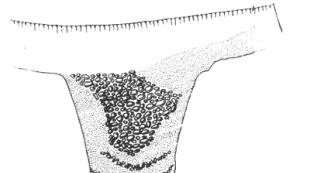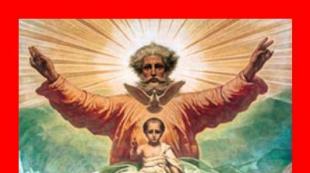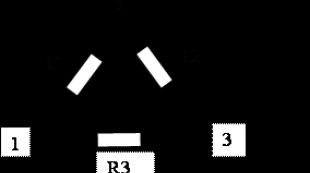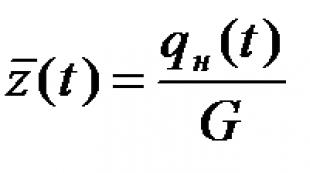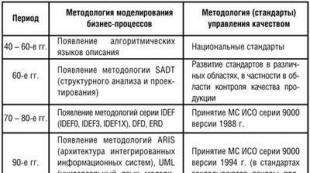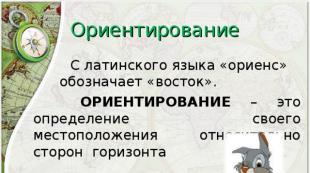What "nationality" was Jesus Christ? Was Jesus a Jew and how did it all begin?
I don’t understand why everyone was up in arms against the Jews, because Jesus Christ also belonged to this nation, and so did the apostles. These are God's chosen people....
Simply put, according to the definition of nationality ACCORDING to his father, Jesus Christ is NOT national. Because according to the Father (conventionally - with a small letter) He is God.
And only for the completeness of the Truth, IMHO, by birth from a Jewish woman of the Jewish law, Mary, Jesus Christ as the God-man can be considered a Jew in the modern interpretation of (new) Judaism.
An analogy of such fullness and harmony of God can be seen both at the birth of man (God created Adam, but from him - a husband, a wife was born - from his rib), and at the second birth of humanity - the Nativity of the Savior, when from a wife (Virgin Mary) is born husband (God-man Jesus Christ). And in baptism in whose Name fallen man is born to eternal life.<...>
___________________________________________________________
Answer to the combatant:
What "nationality" was Jesus Christ?
Heated debates sometimes flare up on this topic. For example, at the forum of Deacon Andrei Kuraev, such a discussion began with the statement sermon by Bishop Luke (Voino-Yasenetsky) “Let the wicked lips be silenced!” from the book "The Graceful Heat of Repentance":
... Recently, with extreme surprise, I heard that my words about the Most Holy Theotokos in one of my sermons, in which I said that She was a Jew, struck some of you very unpleasantly... They say: “Like Jesus Christ was a Jew?! What, then, do we worship the Jew crucified on the Cross!?”
Oh, my Lord, my Lord! How these crazy words struck me, this complete ignorance of sacred history, this wicked reasoning. Don’t you know that our forefather Abraham was the ancestor of the people of Israel, i.e. Jewish people! Don't you know that all the holy prophets were Jews? Have you never read the following words in the letter of the holy Apostle Paul to the Jews: “It is known that our Lord rose from the tribe of Judah”? What is the tribe of Judah? The Tribe of Judah is one of the 12 tribes, of the 12 clans into which the people of Israel, the Jewish people, were divided.
So, the fact that Christ was a Jew is unpleasant for some. Why might this be unpleasant? Why can the people who were chosen by God, marked by God, be unpleasant, why? Because we still have old antipathies towards Jews. So we need to uproot this antipathy. If this is God’s chosen people, then we must treat them with deep respect and love.
After all, Christianity began from the depths of the Jewish people; the first Christians were all Jews. Shouldn’t we therefore love the people from which Christ arose, from which our Christianity began?..
Let the wicked lips be silenced, daring to speak rude words mocking Christ, about which I said: “Do we really worship the Jew crucified on the cross?!” Yes, we will, we will worship, for this Jew was the Son of God...” (1947)
This argumentation of Bishop Luke seems to us not entirely appropriate, especially as an argument against the so-called. "anti-Semitism".
Since the Jewish nationality has not proven itself in the best way in all nations over the past two thousand years, belonging to it seems pleasant to few people. It would be the other way around - they would compete for the honor of belonging to Jewry. This is the main reason for this dispute. Therefore, the pagan Judeophobes, wanting to offend Russian Orthodox Christians, call Christ a “Jew.” Some Judeophobic Christians, for the same reason, vehemently deny this, citing arguments that the Virgin Mary and Jesus were Galileans, Christ spoke Aramaic, his facial features were Aryan, as was the blood type found on the Shroud, etc.
However, it seems to us that this is not the case at all. There is no doubt that the Son of God was incarnated in the chosen (more precisely: created) for this Jewish people, in its best and purest small part - in the Old Testament Church, in the descendants of King David (both Joseph the Betrothed and the Most Pure Mother of God came from this family). The fact that the Messiah was incarnate in this central people of history, to whom such a promise was given by God Himself, but he refused this chosenness - this is the spiritual logic of the entire Holy Scripture, the meaning of history, the tragedy of God’s chosen people, who chose to choose another “father” for themselves and become Satan’s chosen one for Satanization and destruction of the world. The great calling and great fall of God's chosen people is the core of the drama of human history. Anyone who denies the original chosenness of the Jews is unable to understand .
However, did this incarnation give “nationality” to the Son of God for the duration of His earthly life? On the one hand, yes, because He acquired human flesh from the Jewish Virgin (and She, the Purest Vessel that contained God, had no reason to be ashamed of her Jewry, on the contrary: then pious Jewry, Judaism, was the complete opposite of the current Talmudic one). In this flesh, Christ communicated with the Jewish people, preached among them, suffered, and was crucified by these people at the instigation of their leaders.
But on the other hand, the Creed says about Christ: “And in the one Son of God, the Only Begotten, who is from the Father born before all ages" Can we say that the Son of God was born with some kind of human nationality if He was born of God the Father and existed before the beginning of time, before the creation of the earth and humanity, and before the appearance of the Jewish people? The creed goes on to say: “and became incarnate of the Holy Spirit and became man”. That is, in the Mother of God Mary He later became man; it does not say “became Jewish” only for the Jews. So, speaking about the Nativity of Christ, we mean his Incarnation in human form for all people, and not for the sanctification of Jewish blood and flesh as sinless for all times. And the flesh of the Jewish people, after all, was also not originally “Jewish” (it was created by God in Adam, from whom all nations have their flesh), that is, this flesh was originally created as universal, and began to be called “Jewish” from Abraham.
So did the incarnate Christ become precisely a “Jew” - or did he simply become human in Jewry? After all, He did not cease to be the Son of God, “begotten before all ages,” and He came into the world for all mankind, and not just for the Jewish people - this was only the place of coming. At the same time, the non-Jewish wise men greeted him, and the Jewish leaders condemned him to crucifixion. Christianity was adopted mainly by Japhetic (European) peoples, not by Jews. Therefore, to call Christ a “Jew” by blood for the purpose of national exaltation of Jewry means inappropriately belittling the eternal God-manhood of the Son of God (for the redemption of people from all nations). Moreover, today the word “Jew” has several shades of meaning, and it is not appropriate to squeeze Christ the Savior today - no matter for what purposes: philo-Semitic or “anti-Semitic” - into the carnal framework of that now spiritually degenerated tribe, overwhelmed by national pride, which itself refused consider Him as Your Messiah.
And really, having ascended to Heaven, the Son of God took with him the “nationality” in which he temporarily acted in earthly life for the salvation of all people? Does He need it (the blood nationality of the spiritually reborn former God's chosen people, who became Satan's chosen people), sitting in Heaven at the right hand of His Father? Does God the Father Himself, whom Jews and Judaizers also often try to nationalize with the term “Jewish God”, need any kind of “nationality”? God existed eternally, even before the appearance of the Jews, and His true children are in all nations, not just the Jewish ones. This is done by the Jews in order to declare “blasphemous” any criticism of any Jewry, including anti-Christian Judaism with all its crimes.
Moreover, the Apostle Paul said about the “nationality” of the chosen people: “Not all the children of Abraham who are of his seed... That is, the children of the flesh are not the children of God, but the children of the promise are recognized as the seed” (Rom. 9:7- 8). “If you are Christ’s, then you are Abraham’s seed and heirs according to the promise” (Gal. 3:29). So it’s time for the neo-pagans to stop telling us about “the admiration of Christians for Jewish Israel.” Our Israel is the new people of God: the Church. - This is the true “nationality” of Christ: He, by His earthly nature, is All-Man.
Mikhail Viktorovich NAZAROV,
Orthodox writer, publicist,
founder of the publishing house "Russian Idea"
.

|
7 proclaim the commandment of the Lord. The Lord spoke to Me: You are My Son, I have given birth to You today. |
7 I declare the commandment of the Lord: The Lord said to Me: “You are My Son, today I have begotten You. |
|
8 Ask of Me, and I will give You the tongues of Your inheritance, and Your possession the ends of the earth. |
8 Ask of Me, and I will give You the nations for Your inheritance, and the ends of the earth for Your possession. |
|
9 I have protected you with a rod of iron, as I have crushed the vessels of the wicked. |
9 You will rule them with a rod of iron, just as you will crush them with a potter’s vessels.” |
+ + +
“For to which of the Angels did [God] ever say: You are My Son, today I have begotten You? And again: I will be His Father, and He will be My Son?” (Heb. 1:5)
“So the Messiah (Christ) did not appropriate to Himself the glory of being a high priest, but He who said to Him: You are My Son, today I have begotten You;” (Heb. 5:5)
+ + +
Today, one only has to enter these words into an Internet search to be convinced that there is fierce debate about whether Jesus of Nazareth was actually a Jew. Before we can answer this question properly, we must ask ourselves another question: Who are the Jews? Even this question has its controversial elements, and the answer depends on who is answering. But one definition that each of the major sects of Judaism—Orthodox, Conservative, and Reform—is likely to agree with is this: “A Jew can be any person whose mother was Jewish, or any person who has gone through the formal process of conversion to Judaism.”
Although the Hebrew Bible nowhere specifically states that the maternal line of descent should be used, modern rabbinic Judaism teaches that several passages in the Torah do so—for example, Deuteronomy 7:1–5; Leviticus 24:10 and Ezra 10:2-3. There are also several examples in Scripture of the conversion of Gentiles to Judaism (for example, the Moabite Ruth, see Ruth 1:16, where she expresses a desire to convert), who were then considered the same Jews as the ethnic representatives of this nation.
So let's look at these three questions: Was Jesus an ethnic Jew? Was Jesus religiously Jewish? And finally, if Jesus was a Jew, then why don't Christians follow Judaism?
Was Jesus an ethnic Jew, and was His mother Jewish? Jesus clearly identified with the Jews of those days, His physical kinsmen and their religion (albeit correcting its errors). God specifically sent Him to Judea: “He came to his own [Jews], but his own [Jews] did not receive Him. To those [Jews] who accepted Him, He granted the right to be children of God. These are those who believe in Him (John 1:11-12), and He clearly said, “You [Gentiles] do not know what you worship, but we [Jews] know what we worship, for salvation is from the Jews” (John 4:22).
The first verse of the New Testament clearly identifies Jesus' ethnicity as Jewish. “Genealogy of Jesus Christ, descendant of David and Abraham” (Matthew 1:1). As seen in Hebrews 7:14, “It is common knowledge that our Lord came from the tribe of Judah,” Jesus came from the tribe of Judah, from which we receive the name “Jews.” What about Mary, the mother of Jesus? In the genealogy in the Gospel of Luke (chapter 3), we clearly see that Mary was a direct descendant of King David, which gave Jesus the legal right to ascend to the Jewish throne, and also determined that Jesus was an ethnic Jew.
Was Jesus religiously Jewish? Both of Jesus' parents "did all that the law of the Lord commanded" (Luke 2:39). His aunt and uncle, Zechariah and Elizabeth, were also religious Jews who followed the Torah (Luke 1:6), so we can see that the entire family probably took the Jewish faith very seriously.
In the Sermon on the Mount (Matthew 5–7), Jesus continually affirmed the authority of the Torah and the prophets (Matthew 5:17), even in the Kingdom of Heaven (5:19–20). He attended the synagogue regularly (Luke 4:16), and His teachings were respected by other Jews of his day (Luke 4:15). He taught in the Jewish temple in Jerusalem (Luke 21:37), and if He were not a Jew, He would not have been allowed into that part of the temple (Acts 21:28–30).
Jesus also showed the outward signs of a strictly religious Jew. He wore tzitzit (tassels) on His clothing (Luke 8:43, Matthew 14:36), which served as a reminder of the commandments (Numbers 15:37–39). He celebrated the Passover (John 2:13) and went to Jerusalem (Deuteronomy 16:16) on this important Jewish pilgrimage festival. He celebrated Sukkot, or the Feast of Tabernacles (John 7:2, 10), and went to Jerusalem (John 7:14), as prescribed in the Torah. He also celebrated Hanukkah, the Feast of Lights (John 10:22), and probably Rosh Hashanah, the Feast of Trumpets (John 5:1), visiting Jerusalem on both occasions, although this was not specified in Scripture. It is obvious that Jesus considered Himself to be a Jew (John 4:22) and the King of the Jews (Mark 15:2). From his birth to his last Passover Seder (Luke 22:14–15), Jesus lived as a law-keeping Jew.
So if Jesus was a Jew, then why don't Christians follow Judaism? The laws of Judaism were given to Moses for the children of Israel in a sacred and special covenant at Mount Sinai, recorded in the book of Exodus. In this covenant, God wrote his laws on tablets of stone, and Israel was commanded to do everything that was revealed to them. But this wonderful covenant was only a type of the new and better covenant that God was one day going to give to His people, both Jew and Gentile.
This new covenant is recorded in Jeremiah 31:31–34: “The days will come,” says the Lord, “when I will make a new covenant with the descendants of Israel and with the descendants of Judah—not the same covenant as I made with their fathers when I took them. by the hand and led them out of Egypt. They broke that agreement, although I was their Master, says the Lord. “Then I will make another agreement with the descendants of Israel,” says the Lord. “I will put My Law in their hearts, I will write it in their hearts.” I will be their God, they will be My people! And no one will anymore instruct his neighbor, his brother, saying: “Know the Lord!” “For all of them, from the least to the greatest, will know Me,” says the Lord. “I will forgive them their crime, I will remember their sin no more.”
Christians today do not follow Judaism because the Mosaic covenant was fulfilled in Jesus Christ. Jesus said, “Do not think that I have come to abolish the Law or the Prophets. I have not come to abolish, but to fulfill” (Matthew 5:17). And the author of Hebrews writes: “By calling this a New Covenant, He declared the first covenant to be obsolete. But what is old and grows old will soon pass away” (Hebrews 8:13).
As Christians, we are no longer obligated to follow the old covenant because the Old Testament has been replaced. We now have a better covenant, with a better sacrifice, under a better High Priest! “Therefore, brothers, through the blood of Jesus we have free access to the sanctuary. He opened a path for us there - a new and life-giving one, a path through the veil, which means through the sacrifice of His body. Our great Priest is placed over the whole house of God. So let us approach there with a devoted heart, in the fullness of firm faith, with hearts cleansed of everything bad that was on our conscience, and with bodies washed with clean water. Let us hold steadfastly to an unwavering confession of the things we hope for, because he who promised is faithful (Hebrews 10:19–23).
The Orthodox Jews of Jerusalem were irreconcilable in their hostility to the teachings of Christ. Does this mean that Jesus was not a Jew? Is it ethical to question the Virgin Mary?
Jesus Christ often called himself the Son of Man. The nationality of the parents, according to theologians, will shed light on the Savior’s belonging to one or another ethnic group.
According to the Bible, all humanity came from Adam. Later, people themselves divided themselves into races and nationalities. And Christ, during his lifetime, taking into account the Gospels of the Apostles, did not comment on his nationality in any way.
Birth of Christ
The country of Judea, the Son of God, in those ancient times was a province of Rome. Emperor Augustus ordered a study. He wanted to find out how many inhabitants there were in each of the cities of Judea.
Mary and Joseph, the parents of Christ, lived in the city of Nazareth. But they had to return to their ancestral homeland, Bethlehem, to add their names to the lists. Once in Bethlehem, the couple could not find shelter - so many people came to the census. They decided to stop outside the city, in a cave that served as a refuge for shepherds during bad weather.
That night Mary gave birth to a son. Having wrapped the baby in swaddling clothes, she put him to sleep where they put feed for livestock - in the manger.
The shepherds were the first to know about the birth of the Messiah. They were tending flocks in the vicinity of Bethlehem when an angel appeared to them. He broadcast that the savior of humanity had been born. This is a joy for all people, and the sign for identifying the baby will be that he lies in a manger.
The shepherds immediately went to Bethlehem and came across a cave, in which they saw the future Savior. They told Mary and Joseph about the angel's words. On the 8th day, the couple gave the child a name - Jesus, which translated means “savior” or “God saves.”
Was Jesus Christ a Jew? Was nationality determined by father or mother at that time?
Star of Bethlehem
On the very night when Christ was born, a bright, unusual star appeared in the sky. The Magi, who studied the movements of celestial bodies, went after her. They knew that the appearance of such a star spoke of the birth of the Messiah.
The Magi began their journey from an eastern country (Babylonia or Persia). The star, moving across the sky, showed the sages the way.

Meanwhile, the numerous people who came to Bethlehem for the census dispersed. And Jesus' parents returned to the city. The star stopped over the place where the baby was, and the wise men went into the house to present gifts to the future Messiah.
They offered gold as tribute to the future king. They gave incense as a gift to God (incense was still used in worship back then). And myrrh (fragrant oil with which they rubbed the dead), as for a mortal person.
King Herod
The local king, subordinate to Rome, knew about the great prophecy - a bright star in the sky marks the birth of a new king of the Jews. He called to him the magicians, priests, and soothsayers. Herod wanted to know where the baby Messiah was.
With deceitful speeches and deceit, he tried to find out the whereabouts of Christ. Having not received an answer, King Herod decided to exterminate all the babies in the area. 14 thousand children under the age of 2 were killed in and around Bethlehem.
However, ancient historians, among others, do not mention this bloody event. This may be due to the fact that the number of children killed was much smaller.
It is believed that after such an atrocity, the wrath of God punished the king. He died a painful death, eaten alive by worms in his luxurious palace. After his terrible death, power passed to the three sons of Herod. The lands were also divided. The regions of Perea and Galilee went to Herod the Younger. Christ spent his life in these lands for about 30 years.
Herod Antipas, the tetrarch of Galilee, beheaded his wife Herodias to please the sons of Herod the Great did not receive the royal title. Judea was ruled by a Roman procurator. Herod Antipas and other local rulers obeyed him.
Mother of the Savior
The Virgin Mary's parents were childless for a long time. At that time it was considered a sin; such a union was a sign of God's wrath.
Joachim and Anna lived in the city of Nazareth. They prayed and believed that they would definitely have a child. Decades later, an angel appeared to them and announced that the couple would soon become parents.
According to legend, the Virgin Mary The happy parents swore that this child would belong to God. Until the age of 14, Mary, the mother of Jesus Christ, was raised in the temple. From a young age she saw angels. According to legend, the Archangel Gabriel looked after and protected the future Mother of God.
Mary's parents died by the time the Virgin had to leave the temple. The priests could not keep her. But they also felt sorry for letting the orphan go. Then the priests betrothed her to the carpenter Joseph. He was more of the Virgo's guardian than her husband. Mary, the mother of Jesus Christ, remained a virgin.
What was the nationality of the Mother of God? Her parents were natives of Galilee. This means that the Virgin Mary was not a Jew, but a Galilean. By confession, she belonged to the Law of Moses. Her life in the temple also points to her upbringing in the faith of Moses. So who was Jesus Christ? The nationality of the mother, who lived as a pagan in Galilee, remains unknown. The mixed population of the region was dominated by Scythians. It is possible that Christ inherited his appearance from his mother.
Father of the Savior
For a long time, theologians have been debating whether Joseph should be considered the biological father of Christ? He had a fatherly attitude towards Mary, he knew that she was innocent. Therefore, the news of her pregnancy shocked the carpenter Joseph. The Law of Moses severely punished women for adultery. Joseph was supposed to stone his young wife.

He prayed for a long time and decided to let Mary go and not keep her near him. But an angel appeared to Joseph, announcing an ancient prophecy. The carpenter realized how much responsibility he had for the safety of the mother and child.
Joseph is Jewish by nationality. Can he be considered the biological father if Mary had an immaculate conception? Who is the father of Jesus Christ?
There is a version that the Roman soldier Pantira became the Messiah. In addition, there is a possibility that Christ was of Aramaic origin. This assumption is due to the fact that the Savior preached in Aramaic. However, at that time the language was widespread throughout the Middle East.
The Jews of Jerusalem had no doubt that the real father of Jesus Christ existed somewhere. But all versions are too dubious to be true.
Image of Christ
The document of those times, describing the appearance of Christ, is called “The Epistle of Leptulus.” This is a report to the Roman Senate, written by the proconsul of Palestine, Leptulus. He claims that Christ was of medium height with a noble face and good figure. He has expressive blue-green eyes. The hair, the color of a ripe walnut, is combed in the middle. The lines of the mouth and nose are impeccable. In conversation he is serious and modest. He teaches gently and in a friendly manner. Scary in anger. Sometimes she cries, but never laughs. A face without wrinkles, calm and strong.
At the Seventh Ecumenical Council (8th century), the official image of Jesus Christ was approved. The Savior should be painted on the icons in accordance with his human appearance. After the Council, painstaking work began. It consisted of reconstructing a verbal portrait, on the basis of which a recognizable image of Jesus Christ was created.
Anthropologists claim that the icon painting uses not the Semitic, but the Greco-Syrian thin, straight nose and deep-set, large eyes.
In early Christian icon painting they were able to accurately convey the individual, ethnic features of a portrait. The earliest image of Christ was found on an icon dating from the beginning of the 6th century. It is kept in Sinai, in the monastery of St. Catherine. The face of the icon is similar to the canonized image of the Savior. Apparently, the early Christians considered Christ a European type.
Nationality of Christ
There are still people who claim that Jesus Christ is a Jew. At the same time, a huge number of works have been published on the topic of the non-Jewish origin of the Savior.

At the beginning of the 1st century AD, as Hebraic scholars found out, Palestine split into 3 regions, which differed in their confessional and ethnic characteristics.
- Judea, led by the city of Jerusalem, was inhabited by Orthodox Jews. They obeyed the law of Moses.
- Samaria was closer to the Mediterranean Sea. The Jews and Samaritans were long-time enemies. Even mixed marriages between them were prohibited. In Samaria there were no more than 15% of Jews from the total number of inhabitants.
- Galilee consisted of a mixed population, some of whom remained faithful to Judaism.
Some theologians claim that the typical Jew was Jesus Christ. His nationality is beyond doubt, since he did not deny the entire system of Judaism. But he just disagreed with some of the tenets of the Mosaic Law. Then why did Christ react so calmly to the fact that the Jews of Jerusalem called him a Samaritan? This word was an insult to a true Jew.
God or man?
So who is right? Those who claim that Jesus Christ is God? But then what nationality can one demand from God? He is beyond ethnicity. If God is the basis of all things, including people, there is no need to talk about nationality at all.
What if Jesus Christ is a man? Who is his biological father? Why did he receive the Greek name Christ, which means “anointed one”?

Jesus never claimed to be God. But he is not a person in the usual sense of the word. His dual nature was the acquisition of a human body and a divine essence within that body. Therefore, as a man, Christ could feel hunger, pain, anger. And as a vessel of God - to create miracles, filling the space around you with love. Christ said that he does not perform healings on his own, but only with the help of a Divine gift.
Jesus worshiped and prayed to the Father. He completely submitted himself to His will in the last years of his life and called on the people to believe in the One God in heaven.
As the Son of Man, he was crucified for the salvation of people. As the Son of God, he was resurrected and incarnated in the trinity of God the Father, God the Son and God the Holy Spirit.
Miracles of Jesus Christ
About 40 miracles are described in the Gospels. The first happened in the city of Cana, where Christ, his mother and the apostles were invited to a wedding. He turned water into wine.
Christ performed the second miracle by curing a patient whose illness lasted 38 years. The Jews of Jerusalem became embittered with the Savior - he violated the rule about the Sabbath. It was on this day that Christ worked himself (he healed the sick) and forced another to work (the sick man carried his own bed).

The Savior raised the dead girl, Lazarus and the widow's son. He healed a demoniac and calmed a storm on Lake Galilee. Christ fed the people with five loaves after the sermon - about 5 thousand of them gathered, not counting children and women. Walked on water, healed ten lepers and the blind of Jericho.
The miracles of Jesus Christ prove his Divine essence. He had power over demons, illness, death. But he never performed miracles for his own glory or to collect offerings. Even during interrogation by Herod, Christ did not show a sign as evidence of his power. He did not try to defend himself, but asked only for sincere faith.
Resurrection of Jesus Christ
It was the resurrection of the Savior that became the basis for a new faith - Christianity. The facts about him are reliable: they appeared at a time when eyewitnesses of the events were still alive. All recorded episodes have slight discrepancies, but do not contradict each other as a whole.
The empty tomb of Christ indicates that the body was taken (by enemies, friends) or Jesus rose from the dead.
If the body had been taken by enemies, they would not have failed to mock the disciples, thus stopping the emerging new faith. Friends had little faith in the resurrection of Jesus Christ; they were disappointed and depressed by his tragic death.

Honorary Roman citizen and Jewish historian Josephus mentions the spread of Christianity in his book. He confirms that on the third day Christ appeared alive to his disciples.
Even modern scientists do not deny that Jesus appeared to some followers after death. But they attribute this to hallucinations or other phenomena, without challenging the authenticity of the evidence.
The appearance of Christ after death, the empty tomb, the rapid development of a new faith are proof of his resurrection. There is not a single known fact that denies this information.
Appointment by God
Already from the first Ecumenical Councils, the Church unites the human and divine nature of the Savior. He is one of the 3 hypostases of the One God - Father, Son and Holy Spirit. This form of Christianity was recorded and declared the official version at the Council of Nicaea (in 325), Constantinople (in 381), Ephesus (in 431) and Chalcedon (in 451).
However, disputes about the Savior did not stop. Some Christians argued that Jesus Christ is God. Others argued that he is only the Son of God and is completely subject to his will. The basic idea of the trinity of God is often compared to paganism. Therefore, disputes about the essence of Christ, as well as about his nationality, do not subside to this day.
The cross of Jesus Christ is a symbol of martyrdom for the atonement of human sins. Does it make sense to discuss the nationality of the Savior if faith in him can unite different ethnic groups? All people on the planet are children of God. The humanity of Christ stands above national characteristics and classifications.
We often hear debates about whether Christ was a Jew or not. Even atheists who believe in Christ as a mere mortal reformer of religions have their own point of view on this issue.
For example, some of those who blame all their personal and all-Russian evil on the Jews claim that Christ was the son of a Roman legionnaire.
Others believe that he was an Israelite, and therefore not a Jew. Well, and the more advanced ones, i.e. the more well-read believe that Jesus was deprived of nationality altogether, because... was the Son of God and a stranger from other worlds.
And since, according to the human pattern, the son inherits the nationality of his father, it turns out that God the Father is a Jew, and this is offensive to all monotheists, including Muslims and with the exception of the Jews themselves. Oddly enough, to some extent everyone is right, but what is the truth and where to look for it?
WHAT DO THE PRIMARY SOURCES SAY?
I propose to dwell, as a first approximation, on what is an indisputable truth for all Christians - this is the Bible, the Word of God.
In the very first lines of the New Testament, in the Gospel of Matthew, the genealogy of Christ is given: “The genealogy of Jesus Christ, the Son of David, the Son of Abraham. Abraham begat Isaac, Isaac begat Jacob... So all the generations from Abraham to David are fourteen generations; and from David to the deportation to Babylon there were fourteen generations; and from the deportation to Babylon to Christ there were fourteen generations." - Matt., ch. 1
Who was this Abraham, called in the Bible a friend of God, from whom, as the Apostle Matthew testifies, the genealogical branch of Christ came? The very name Abraham is interpreted as “father of multitudes” and the Bible says about Abraham like this: “And one of the survivors came and told Abraham the Jew, who then lived near the oak grove of Mamre” - Gen. 14:13.
All descendants of Abraham, as a single people, began to be called Jews, which is mentioned in the Bible in more than 300 verses. The second, equally often used, name - Israelites - this people received from the grandson of Abraham - Jacob. “And he said, From now on your name will not be Jacob, but Israel, for you have wrestled with God and will overcome men” - Gen. 32:38.
The name Israel means God-fighter, and at first it was used in a metaphysical sense, and later became commonly used. After the dashing struggle of Solomon's heirs for the throne, which happened almost a thousand years before the birth of Christ, the kingdom was divided into two - Israel and Judea. Endless wars and land redistribution ensued. It has become more common to refer to Jews as Israelis and Jews.
By the time of the coming of Christ, the kingdom of Israel ceased to exist forever, and only Judea remained, which by that time was divided into 4 parts: Judea proper, Samaria, Galilee and the annexed Perea.
Their inhabitants were named after these regions, and all their lands belonged to the Roman Empire. The people, as carriers of the same language and religion, were and remain the descendants of Abraham, i.e. Israelis and Jews, which is confirmed both by the title of one of the letters of the Apostle Paul (“To the Jews”) and by his other words:
"Are they Jews? and I. Israelites? and I. Abraham's Seed? and I.." - 2 Cor. 11:22
“Circised on the eighth day, of the stock of Israel, of the tribe of Benjamin, a Jew of the Hebrews, according to the doctrine of a Pharisee” - Phil.3:5
“In these days, when the disciples multiplied, there arose among the Hellenists a murmur against the Jews because their widows were neglected in the daily distribution of needs” - Acts. 6:1
“Where Jesus entered as the Forerunner for us, becoming a High Priest forever after the order of Melchizedek” - Hebrews 6:20
AREN'T WE ALL A LITTLE JEWS?
I don’t think that I convinced anyone who thinks differently, and I didn’t set such a goal, keeping in mind the thought of the great Einstein: “Everyone arranges facts to suit their own point of view.”
Well, the Bible is such a source of facts! Something like a huge vegetable garden, where absolutely everything necessary for nutrition grows, but everyone manages to pick only what he likes and what suits his appetite! You listen to Christians of different faiths, it seems they all read the same Bible, but each, as if in his own garden, pulls out only those verses that express the correctness of his faith, and others do not notice.
So they sometimes shoot quotes from the same book at each other for hours. Here it would be a good idea for Christians to learn from Buddhists the ability to share without imposing, which, however, was the basic principle of Christ himself.
Oriented translations of the Bible also create a lot of confusion, but that’s another story...
Let me return to the beginning of the question, i.e., was Christ a Jew? I am stating my point of view. In that distant time, when I was interested in this question, I found the above answer for myself, so far it satisfies me.
But I adhere to and share the principle of one of the books of Agni Yoga “do not value the word of the one who explains” and therefore I advise everyone to look for their own answers to their questions, as the New Testament encourages this, suggesting to delve into oneself and the Teaching, as well as to independently explore everything, and then hold on well.
If the Evangelist Matthew reports the genealogy of Christ from the Mother’s side, then Luke contains information about the genealogy of Christ’s adoptive father, Joseph, who was also a descendant of Abraham and a Jew, and who was recorded as the father of Christ in official papers. As for the etymology of the word “Jew,” many sources connect it with the genealogy of Abraham himself, one of whose ancestors was, according to the Bible, a certain Eber, which is mentioned not only in the Old Testament, but which is also confirmed by the Apostle Luke (Luke 3:35) .
The word Eber and its derivative, Jew, are interpreted as a stranger, a wanderer. And, if Eusebius and other respected historians are right in this interpretation, then, from my point of view, the true meaning of the word Jew (Stranger, Wanderer) surprisingly approaches the mission of Christ, combining into one the essence of his earthly and heavenly pilgrimage.
But what the heavenly nationality of Christ is - I don’t dare to judge. I can, of course, present my interpretation of what I read from the Roerichs and Blavatsky, but...
Do not “value the words of the explainer,” make your own pilgrimage to the shining primary sources, friends!
How is the nationality of anyone determined? Firstly - by blood and language (spirit), and secondly - according to the country of birth and residence. If we take where His Mother, the Most Pure Virgin Mary, came from, Jesus was called a Galilean. Throughout the first centuries of Christianity, this name was no less common than Christ. The prophet Isaiah also said: Galilee is Gentile (Isaiah 9:1). That is, the non-Jewish land, alien to the Jews, bordering on Judea. The Jews somehow did not take root in Galilee, no matter how many centuries passed, and the definition of the prophet Isaiah became winged. The combination of words “Pagan Galilee” was no less stable than, say, “Belle France” or “Holy Rus'”.
How did it happen that Jews did not take root in Galilee? Back in 721 BC. Sargon, king of Assyria, crushed Israel and scattered ten of its twelve tribes. That is, Sargon deported all the Jews who lived there from Galilee and brought another people in their place. He did this for the following reason. The Jewish tribes had entered into an anti-Assyrian alliance more than once before, and the king of Assyria wished that Egypt, the rival of his kingdom, would not have a military ally in the strategically important Galilee Valley.
Who exactly settled Galilee by the Assyrian king? King Sargon wanted the Jews who were expelled by him not to return. And he turned to the Scythians, since “it is known for certain that they struck terror into the hearts of the Jews.” There was an ancient enmity between these two peoples: the Scythians were the descendants of those Aryans whom the Jews drove out of Galilee, invading there with weapons under the leadership of Joshua, who ordered the extermination of everyone (Joshua 6:20). Yes, precisely to exterminate, and not to evict, like Sargon. The custom of revenge for relatives existed at that time in almost all tribes. So the Scythians took revenge. And they came - from those regions of the North that are now known to mankind as Russia: from that land that is the home of the ancestors of people with white skin: the ancestral home of all Aryans, Indo-Europeans.
Modern anthropologists believe that the people of this particular region, following south along the Volga to the Caspian Sea, and to the borders of Asia Minor, in distant prehistoric times undertook a dangerous journey to a warmer climate and easier conquests through Iran to India and Mesopotamia. It was these white-skinned people who were the ancestors of the Sumerians and all the most ancient Aryan tribes of Asia Minor - the ancestors of all those who would later be called the creators of Civilization.
The Assyrian king's calculation turned out to be correct. The tribes of Israel that lived in Galilee before his arrival never returned there again. The Scythians, summoned by Sargon, vowed never to leave the land of their ancestors. They built the city of Scythopolis (modern name Besan) in Galilee - only twenty miles from Nazareth. The walls and towers of Scythopolis controlled all the fords across the Jordan and therefore acted as a shield for the Scythian Galilee and the Assyrian kingdom in case of military danger.
Among Orthodox Russians, descendants of the ancient Scythians, there is a long tradition of claiming that the Blessed Virgin came from their family. And this version is much more reliable than the version of the Jewish origin of Mary, because the Jews only occupied Galilee twice and were expelled twice.
In 164 BC. Simon Maccabeus Tarsis, prince of the Jews, ordered the cleansing of "Gentile Galilee" of the few Jewish families who had settled there when Babylon surrendered to Cyrus. The Law of Maccabees ordered the forced removal of such families to Judea. Why did the Jewish prince need such a law? Perhaps Maccabeus was concerned that the Jews, communicating with the indigenous non-Jewish population of Galilee (at that time it consisted mainly of Scythians, Greeks and Gauls), would be imbued with a freedom-loving spirit, would cease to fanatically fulfill the requirements of the Jewish law, and this would be an example that would provoke their relatives in Judea.
The Maccabean law of forced relocation is known to historians. Historians write about the few Jews who squeezed into the Pagan Galilee: “Maccabeus returned them all to Judea, making Galilee again a strictly non-Jewish country.” But here it should be noted: the law of the Jewish prince provided for the forced relocation to Judea not of every Jew who settled in Galilee, but of every Jewish family living there.
However, what was a family according to Jewish law? It meant only that union in which both spouses were of Jewish blood. A mixed union was not considered a family according to Jewish law. The Old Testament contains a number of episodes from which it is easy to see: such a union even constituted a crime against Jewish law. And this crime was often punishable by death.
«
And behold, one of the children of Israel... brought the Midianite woman in the sight of Moses and in the sight of all the congregation of the children of Israel... Phinehas the son of Eleazar the son of Aaron the priest rose from the midst of the congregation and took a spear in his hand, and followed the Israelite into his bedroom, and he struck them both: the Israelite and the woman in her womb (Numbers 25:6-8.).” And it goes on to say that the Jewish god rewards Phinehas for his “zeal” with “the covenant of an everlasting priesthood” (Numbers 25:13). In all subsequent centuries BC. The rabbis showed exactly the same “zeal.” This is how it is described, for example, in the book of Nehemiah. “I saw the Jews take wives from the women of Azhit, the women of Ammon, and the women of Moab... and I cursed them, and beat some of the husbands, and pulled out their hair, and cast a spell on them” (Nehemiah 13:23-25). And then Nehemiah writes that a Jew who marries a foreign woman commits “great evil” before the Jewish god (Neh. 13:27).
So, a person who entered into a mixed marriage was considered by the Jews at the time of Christ to have violated the Jewish law, which means it is the same as being dead. The removal of such families to Judea would constitute not only a temptation to the law, but also a direct demonstration of the possibility of breaking it. Therefore, Maccabee’s order left such families alone, equating them with all other “pagan” families of Pagan Galilee. Despite the fact that many Jews in mixed unions continued to follow most of the customs of Judaism, and some encouraged their family members to do so.
The Law of the Maccabees was not repealed even in the time of Christ. But, let us repeat, it concerned entirely Jewish families, only them. Otherwise, in Galilee by the time of R.H. There would not be a single Jew left at all. But such a “national minority,” as they would say now, still lived there. The Gospels also testify to the Galileans of Jewish nationality. The most detailed example is provided by St. Joseph, the husband of the Blessed Virgin. Luke says about him: “he was from the house and family of David” (Luke 2:4). And in the next chapter he lists in detail all the Jewish ancestors of Joseph right up to King David and even more ancient ones.
Here it is important to remember the fact that Joseph was only a betrothed: he never knew Mary as a husband knows his wife. This has been affirmed from the beginning by all Christians in the world. This was also recognized by opponents of Christianity. The Jews of the first centuries were instructed by the rabbis to call Christ nothing other than Ben Pardus, that is, the Son of the Lynx. They wanted to emphasize by this, in order to turn their fellow tribesmen away from Christian preaching, that Jesus was illegitimate, and that His father was a centurion named Lynx - a Roman legionnaire from the Russians.
The Gospel says quite definitely: “The birth of Christ was like this: after the betrothal of His Mother Mary to Joseph, before they were united, it turned out that She was pregnant with the Holy Spirit” (Matthew 1:18). So, Joseph, a Jew from the tribe of David, is not the father of Christ; Why then do the holy Evangelists cite in great detail the genealogy of St. Joseph - who is interested in this and what is it for?
This question has already attracted the attention of many. The time has come to give an answer to it. Perhaps for most of our contemporaries it will seem unexpected. Two full millennia have passed since it was obvious. So: the genealogy of Joseph was cited as an argument that achieves a complete, final refutation of the Ebionite heresy in its very germ. And this argument was included in the texts of the Gospels themselves.
Indeed, evangelicals constantly emphasize three facts:
1). Joseph, officially, is the husband of Mary (“with Mary betrothed to his wife” - Luke 2:5);
2).Joseph, for sure, is ethnically a Jew (here is his genealogy even from Eber himself! - Luke 3:23-35);
3).Joseph is only a betrothed, he had nothing to do with the birth of Jesus Christ (“And Joseph took his wife, and did not know her, and behold, she gave birth to her son, her firstborn” - Mat 1: 24, 25). The blood of Joseph, therefore, could in no way flow in the veins of the earthly flesh of Jesus Christ.
The rest comes out easily. Anyone living in the time of St. The evangelists, having compared three facts, could figure out the following. The Holy Family was not forcibly relocated to Judea, despite the fact that Joseph was a Jew. Therefore, this family was not subject to the Maccabean law. And if it did not qualify, then it means that the Holy Family was a mixed marriage.
For a person who lived during the time of the law on forced relocation, all this was so obvious that it did not even need to be described in detail. It was enough to point out the three above-mentioned facts in their totality - and the heresy of the Ebionites was completely refuted!
One question arises. It is known that in the Gospels there are later insertions of the Ebionite sense. Fragments of text not written by St. by the evangelists, but added decades later by the Ebionite scribes. These insets can be seen with the naked eye, because such fragments are not consistent with the surrounding text. Here is one example of a sidebar. The Apostle Peter allegedly says that Christ “is from the fruit of David’s loins” (Acts 2:30). But then we read that the apostle quotes the words of David: “The Lord said to my Lord, Sit on My right hand, until I make Your enemies Your footstool” (Acts 2:34-35). So, these are the words Jesus Himself cites as proof that He does NOT come from the fruit of David’s loins (Mark 12:35–40)! And the disciple of Christ could not help but know this. Obviously, verse 30 of the second chapter of Acts contains a sidebar. Consequently, other supposedly New Testament texts exaggerating the theme of the “son of David” are not worth much.
Two factors stand against the restoration of the truth about Christ. One of them is the inertia of lies. If a person first knew some fact in a false light for a long time, and then receives information that refutes this lie, then his consciousness cannot be rebuilt immediately. The truth, even if proven with the accuracy of a geometric theorem, will still be perceived, at best, only as an “interesting hypothesis”, an “alternative point of view”. The second factor... it represents the power of gold, the power of money. It is beneficial for the leaders of the Jewish Diaspora that the peoples of the world continue to believe that Christ was supposedly a Jew. During the late Middle Ages, these leaders achieved influence even over kings, methodically declaring the formula: “your God is our relative.”
Nevertheless, it is the duty of a Christian to confess the truth. And here we have the right to count on the help of honest Jews. After all, the misconception that Christ was supposedly a Jew is artificially maintained only among non-Jews, while the exact opposite is preached to Jews: Ben Pardus, mentioned above, even found its way into the dictionary of Manly P. Hall! Of course, to claim that Christ is the son of a Roman legionnaire from the Russians is nonsense. But the contrast between what is offered “for domestic use” and what is “for export” is indicative.
